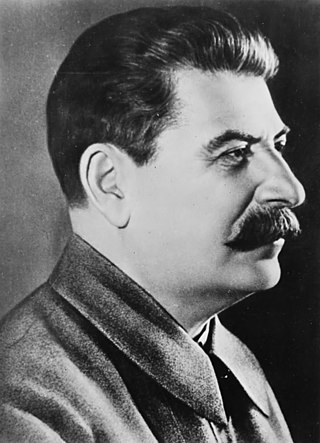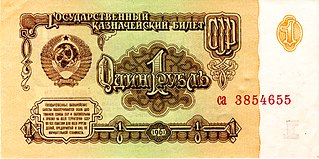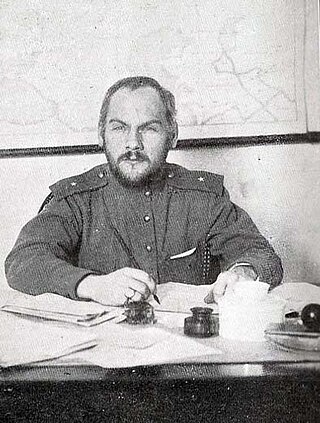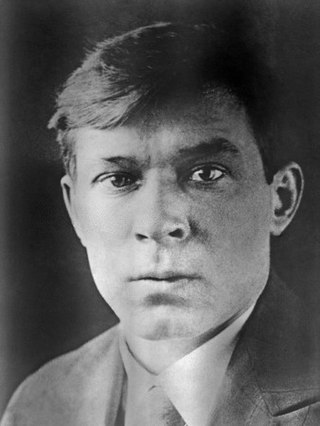Related Research Articles

The politics of Finland take place within the framework of a parliamentary representative democracy. Finland is a republic whose head of state is President Sauli Niinistö, who leads the nation's foreign policy and is the supreme commander of the Finnish Defence Forces. Finland's head of government is Prime Minister Sanna Marin, who leads the nation's executive branch, called the Finnish Government. Legislative power is vested in the Parliament of Finland, and the Government has limited rights to amend or extend legislation. The Constitution of Finland vests power to both the President and Government: the President has veto power over parliamentary decisions, although this power can be overruled by a majority vote in the Parliament.

President is a common title for the head of state in most republics. The president of a nation is, generally speaking, the head of the government and the fundamental leader of the country or the ceremonial head of state.

Socialist law or Soviet law denotes a general type of legal system which has been used in socialist and formerly socialist states. It is based on the civil law system, with major modifications and additions from Marxist–Leninist ideology. There is controversy as to whether socialist law ever constituted a separate legal system or not. If so, prior to the end of the Cold War, socialist law would be ranked among the major legal systems of the world.

The General Secretary of the Central Committee of the Communist Party of the Soviet Union was the leader of the Communist Party of the Soviet Union (CPSU). From 1929 until the union's dissolution in 1991, the officeholder was the recognized leader of the Soviet Union. Officially, the General Secretary solely controlled the Communist Party directly. However, since the party had a monopoly on political power, the General Secretary had executive control of the Soviet government. Because of the office's ability to direct both the foreign and domestic policies of the state and preeminence over the Soviet Communist Party, it was the de facto highest office of the Soviet Union.

Konstantin Vladimirovich Rodzaevsky was the leader of the Russian Fascist Party, which he led in exile from Manchuria. Rodzaevsky was also the chief editor of the RFP paper Nash Put'. After the defeat of anti-communist forces in the Russian Civil War, he and his followers fled to Manchuria in 1925. He was lured by the NKVD to return to the Soviet Union with false promises of immunity and executed in a Lubyanka prison cellar after a trial for "anti-Soviet and counter-revolutionary activities".

Agriculture in the Soviet Union was mostly collectivized, with some limited cultivation of private plots. It is often viewed as one of the more inefficient sectors of the economy of the Soviet Union. A number of food taxes were introduced in the early Soviet period despite the Decree on Land that immediately followed the October Revolution. The forced collectivization and class war against "kulaks" under Stalinism greatly disrupted farm output in the 1920s and 1930s, contributing to the Soviet famine of 1932–33. A system of state and collective farms, known as sovkhozes and kolkhozes, respectively, placed the rural population in a system intended to be unprecedentedly productive and fair but which turned out to be chronically inefficient and lacking in fairness. Under the administrations of Nikita Khrushchev, Leonid Brezhnev, and Mikhail Gorbachev, many reforms were enacted as attempts to defray the inefficiencies of the Stalinist agricultural system. However, Marxist–Leninist ideology did not allow for any substantial amount of market mechanism to coexist alongside central planning, so the private plot fraction of Soviet agriculture, which was its most productive, remained confined to a limited role. Throughout its later decades the Soviet Union never stopped using substantial portions of the precious metals mined each year in Siberia to pay for grain imports, which has been taken by various authors as an economic indicator showing that the country's agriculture was never as successful as it ought to have been. The real numbers, however, were treated as state secrets at the time, so accurate analysis of the sector's performance was limited outside the USSR and nearly impossible to assemble within its borders. However, Soviet citizens as consumers were familiar with the fact that foods, especially meats, were often noticeably scarce, to the point that not lack of money so much as lack of things to buy with it was the limiting factor in their standard of living.

The ruble is the currency of Belarus. The ruble is subdivided into 100 kopecks.

The ruble was the currency of the Soviet Union, introduced in 1922, replacing the Imperial Russian ruble. One ruble was divided into 100 kopecks. Soviet banknotes and coins were produced by the Federal State Unitary Enterprise in Moscow and Leningrad.

Nikolai Vasilyevich Krylenko was an Old Bolshevik and Soviet politician. Krylenko served in a variety of posts in the Soviet legal system, rising to become People's Commissar for Justice and Prosecutor General of the Russian Soviet Federated Socialist Republic. He was executed during the Great Purge.
Russian political jokes are a part of Russian humour and can be grouped into the major time periods: Imperial Russia, Soviet Union and finally post-Soviet Russia. In the Soviet period political jokes were a form of social protest, mocking and criticising leaders, the system and its ideology, myths and rites. Quite a few political themes can be found among other standard categories of Russian joke, most notably Rabinovich jokes and Radio Yerevan.

A people's court in the late Soviet Union was a court of first instance which handled the majority of civil and criminal offenses, as well as certain administrative law offenses.

The Ministry of Justice of the Union of Soviet Socialist Republics (USSR), formed on 15 March 1946, was one of the most important government offices in the Soviet Union. It was formerly known as the People's Commissariat for Justice abbreviated as Наркомюст (Narkomiust). The Ministry, at the All-Union (USSR-wide) level, was established on 6 July 1923, after the signing of the Treaty on the Creation of the USSR, and was in turn based upon the People's Commissariat for Justice of the Russian Soviet Federative Socialist Republic (RSFSR) formed in 1917. The Ministry was led by the Minister of Justice, prior to 1946 a Commissar, who was nominated by the Chairman of the Council of Ministers and confirmed by the Presidium of the Supreme Soviet, and was a member of the Council of Ministers.

The Ministry of Communications of the Union of Soviet Socialist Republics (USSR) (Russian: Министерство связи СССР) was the central state administration body on communications in the Soviet Union from 1923 to 1991. During its existence it had three names: People's Commissariat for Posts and Telegraphs (1923–32), People's Commissariat for Communications (1932–46) and Ministry of Communications (1946–1991). It had authority over the postal, telegraph and telephone communications as well as public radio, technical means of radio and television broadcasting, and the distribution of periodicals in the country.

The Ministry of Justice of Ukraine is the main body in the system of central government of Ukraine that regulates state legal policy. It is often abbreviated as "Мinjust" [of Ukraine]. It is one of the oldest ministerial offices of the country tracing its history back to the beginning of 20th century.

Mendel Markovich Khatayevich was a Soviet politician. 17 March 1937 was 2nd Secretary of the Communist Party (Bolsheviks) of Ukraine. He was one of the main organizers of collectivization in the Ukrainian Soviet Socialist Republic, which caused the death by starvation of millions of people.

First National Art Exhibition "Soviet Russia" was one of the largest Soviet art exhibitions of the 1960s. The exhibition took place in Manezh Exhibition Hall.

Third National Art Exhibition "Soviet Russia" became a main national art event of 1967, as well as one of the largest Soviet art exhibitions of the 1960s. The exhibition took place in Manezh Exhibition Hall.

The All-Union Party «Union of Communists» is a communist party created in 1991 in the USSR, operating in the territory of the countries of the former Soviet Union, the second communist party created after the dissolution of the Communist Party of the Soviet Union (CPSU).

Aleksandr Vasilyevich Kosarev was a Soviet politician and Communist Party official who was active in the youth movement. He served as the 7th First Secretary of the Central Committee of the Komsomol. He played a critical role in promoting the idea of Nikolai Starostin in establishment of professional football competitions in front of the Soviet Council on Physical Culture.
References
This article includes a list of references, related reading, or external links, but its sources remain unclear because it lacks inline citations .(January 2023) |
Sources
- Филиппов Е. И., Комментарий к Положению о товарищеских судах, М., 1972
- Товарищеские суды, М., 1974